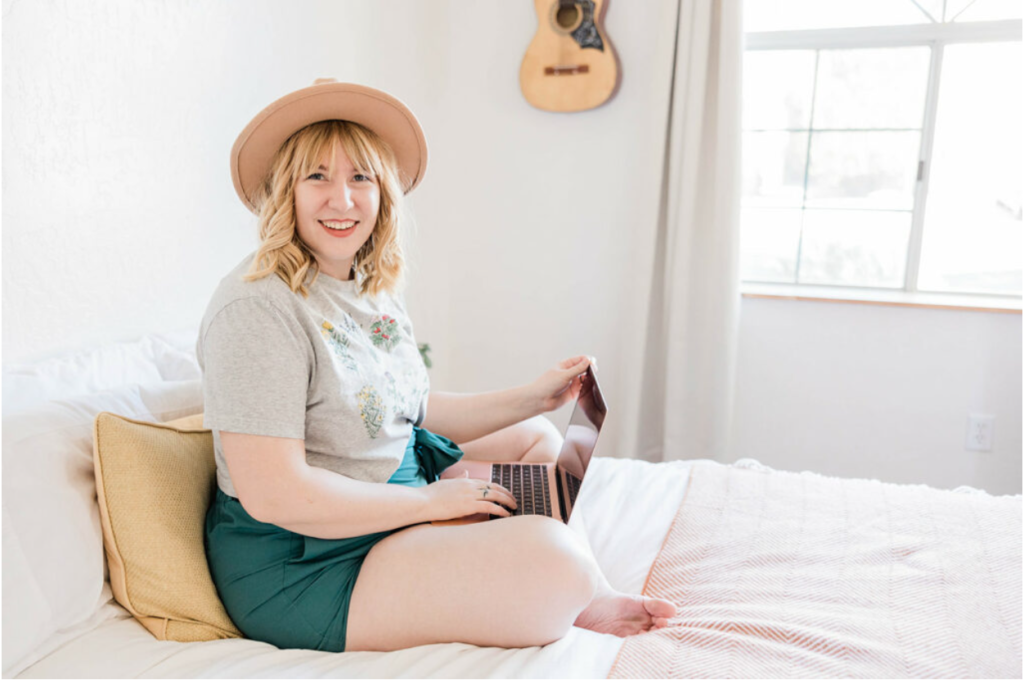How I set goals for myself and my business

One of my favorite things to talk about is how I set goals both for myself and my business. We’ve all heard of “SMART” goals. They’ve been popular for years, but I recently discovered “SMARTER” goals from Michael Hyatt’s book Your Best Year Ever. Instead of the standard five criteria there are actually 7 criteria.
Smarter Goals Are:
- Specific – a vague goal is really hard to get started on because you don’t even know what you’re working towards!
- Measurable – How do you know you’ve achieved your goal if you can’t measure it? How do you know what progress you’ve made?
- Actionable – instead of “attainable” every goal should be actionable. And they should start with an action word! This will keep you motivated and promote actually doing something.
- Relevant – your goal has to be relevant to your priorities and values. Setting a goal because someone else has that goal, or because you think you should, is not the key to success.
- Time-Keyed – Not just a deadline but a plan for WHEN you’re going to work towards this goal.
- Exciting – this is so important because if you’re not personally excited about the goal then you’re less likely to pursue it wholeheartedly.
- Risky – I love this new criteria. Is your goal going to stretch you?
I use these SMARTER goals for my goal planning.
So I first have to decide what are my priorities and my values? What is going to move my “life-assessment score” forward and in what areas. Don’t set more than 4 BIG goals a year. That’s one goal a quarter and can be ordered in terms of what is most important to you first. If you set too many goals you’re not as likely to complete any of them!
Then I make sure to WRITE THEM DOWN. Physically. Somewhere I will see them. This year I made a vision board in order to see them every single day. Let’s go over one of my personal goals for this year and you can see how I set it up.
This year I really want to stretch myself creatively. And I really want a hobby. Something I’m doing just for fun with no intention of making money on it. The words “just for fun” could make it easy not to set a goal for it. To just try when I had time. But I might never had made the time! So I set a goal.
Example of “bad” or undefined goal: “learn to paint”
My Actual Goal: Paint in the office for 30 minutes a day three times a week for 1 month.
This goal is specific – it is not vague we know exactly what we are doing.
This goal is measurable – we can see the progress on the paintings and count them as they’re getting done.
This goal is actionable – “paint” is the verb my goal starts with.
This goal is relevant – it is directly related to living a more creative life AND is a new hobby.
This goal is time-keyed – I said when and for how long I would do it.
This goal is exciting – I am SO excited to start painting again.
The goal is risky – is anything bad going to happen if I’m bad at painting? No. But it is going to stretch me out of my comfort zone into something I haven’t done for years.
P.S. Be selective about which goals you share! Our brains are weird, and when we share our goals it’s like we’ve already completed them. We get the same dopamine hit as if we’d worked on them. Then we are less likely to finish them. So only share your goals with people who will help you achieve them. Derek Sivers talks about this in his Ted Talk!
How I set goals for myself and my business
VIEW THE COMMENTS